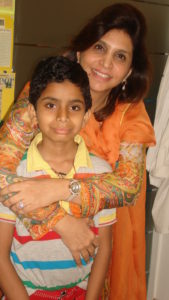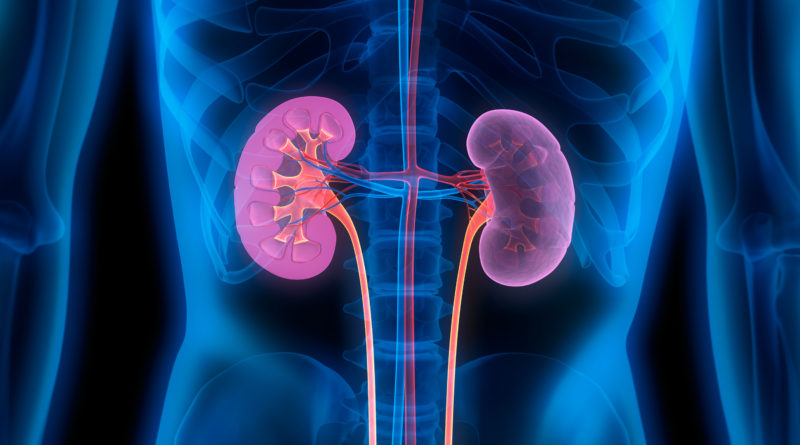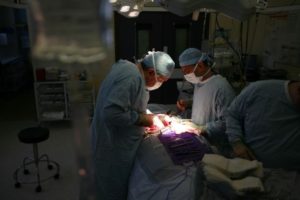Challenges of Organ Shortage
Current organ donation rate in India is 0.05/million population per year, it’s time for the media and government to increase the awareness about organ donation
By Dr Neelam Mohan
I n the recent era, India has seen several advances in health care. In the late 90s, liver transplants were not done in India. The programme kicked off in 2000s, showed slow progress in the initial one decade but later multiple centres emerged in various parts of the country.
I have been a pioneer in this country in developing liver transplant programme and vividly remember that the first conference in India on Liver Transplantation was organized by me in 2006 from 19th to 20th August. I’m happy to see the tremendous progress that we have made in liver transplants in India and I can say without hesitation that we are in the world map for the latest advances in living related liver transplants.

The need for liver transplants in India is more than 20,000/annually while we are doing only one tenth of it. The reasons for this are high cost involved in the procedure and more importantly, there is shortage of organs due to lack of cadaveric organ donation in our country.
Our team started liver transplantation (LT) in Sir Ganga Ram Hospital, Delhi in 2000, and in 2010 – we moved to Medanta The Medicity Hospital, Gurgaon after completing >500 transplants. We have done nearly 3000 liver transplants including >220 liver transplants in small children. Sadly the cadaveric liver transplants have been in single digit numbers. It’s time for the media and government to increase the awareness about cadaveric organ donation in our country. For the benefit of readers, here are my answers to the frequently asked question (FAQs) about organ donation:
Q: 1. Is there a particular age group for an organ donor?
Answer : It is the person’s physical condition, not age, which is the deciding factor. Cornea can be taken for all ages while for organs and tissues, the professionals decide in each case. People in their 70s and 80s could also serve as donors.
Q:2. How are the organs of a donor prioritized?
Answer: There is a waiting list for transplant based on blood type and the severity of the disease. The organ allocation system operates irrespective of wealth or social status factors such as race, gender, age, income, Celebrity status is never considered when determining organ recipients.
Q:3. Can organ donation disfigure the body of donor ?
Answer: Organs are always removed with the greatest of care and respect for the person. This takes place in a normal operation theater under sterile conditions by a team of specialized doctors. Afterwards, the surgical incision is carefully closed and covered by a dressing in the normal way. The operation is carried out by specialist health care professionals who always ensure that the donor is treated with the utmost respect and dignity.
Q 4: Can one still have some chance of coming back to life, after being declared brain dead?
Answer: No, brain death is an irreversible condition that results from a severe brain injury or hemorrhage which causes all the brain activity to stop. When an individual is declared brain dead, a ventilator keeps the body supplied with oxygen, which enables the heart to continue to beat and circulate blood. Once the ventilator is turned off, the heart will stop beating within a few minutes.
Q: 5. Who can decide to donate organs of the brain dead?
Answer : Organ and tissue donation can be implemented only after the family of the patient gives consent. Many people have not recorded their wish about organ donation nor discussed it with their families. When the wishes of the deceased are not known, only 50% of people will agree to organ retrieval from their relative.
Encouraging people to speak about organ donation and transplantation and to make their wishes known to their relatives could change the picture resulting in 93-94% of people allowing donation.
Q:6. Does r
eligion in India not support the idea of organ donation?
None of the major religions in India object to organ donation and transplantation such as Hindu, Muslim, Christians, Sikhs, Buddhism.
Q: 7. What are the steps to do if a person decides to be a donor?
Answer: There are following three steps –
1) Register your decision
2) Inform and discuss with your family and dear ones.
3) Carry your donor card.
Q:8. Are people in India not willing to donate?
Answer: There is a major lack of awareness about organ donation in India. Recent survey in India has revealed that people would come forth with their wish to donate if they had received more information.
Question 9: What are the organs that can be donated by donor?
Answer: Liver, Kidneys, Heart, Intestine, Pancreas, Lungs, Bone, Bone marrow, skin and cornea.
Some facts of organ donation abroad and in India.
The organ donation rate is highest in Spain that is >35/million per year while in USA and UK is more than 25 and 20 per million populations per year respectively.
Current organ donation rate in India is 0.05/million population per year. In India with 1per million donation rate we would have 1100 organ donors -2200 kidneys, 1000 hearts, 1100 liver, 2200 eyes and with 20 per million donation rate -22000 organ donors 44,000 kidneys, 22,000 hearts, 22,000 livers, and 22,400 eyes.
In 2015, there were only 528 national organ donors in India with 1562 organs. Tamilnadu state had the highest number of donors (152) followed by Kerala (76) and Maharashtra (60 ), while Delhi had mere 14 deceased organ donors.
Organ shortage is a crisis, however, the crisis has a solution. We need to network and start thinking of sharing resources, expertise and organs. We should set up collaborative projects and use mass media for promotion. Getting religious heads to participate regularly may be a good idea. We should have transparency in the programme and must set up regional transplant coordinators forums.
To summarise, in India the need of the day is to increase awareness of organ donation. Support groups or NGOs can play a critical role in this regard with support from society and Government.
“Together we can make a difference.”
(The author is Director – Department of Pediatric Gastroenterology, Hepatology & Liver Transplantation, Medanta The Medicity Hospital, Gurgaon)


